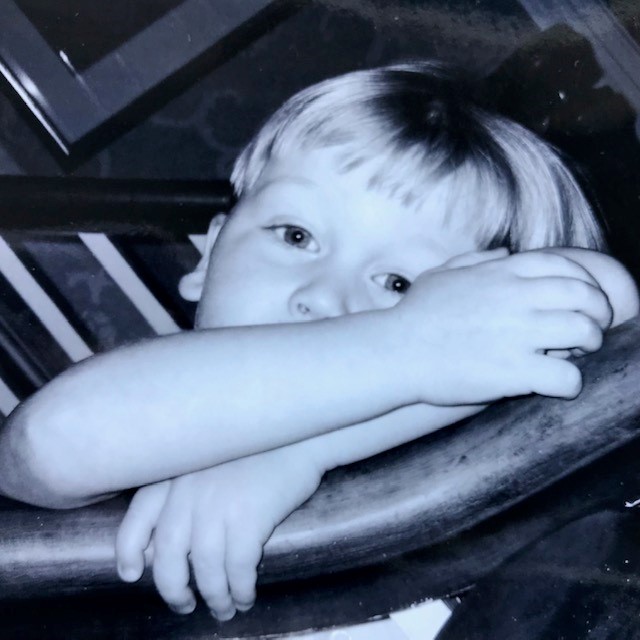
With the onset of winter and the holidays, it’s about this time I start preparing for the darkness. For many of us who suffer, our exhausted bodies are longing for emotional hibernation from physiological elements. Some may see this apathy towards life as selfish, but I look at it as self-preservation. Over Thanksgiving, I learned that the torrential downpour of depression and anxiety is not a solitary storm. My youngest son is also engulfed. Yesterday was a very difficult day for both of us; together we went to ask for help. Selflessness is acknowledging when someone needs you in their corner more than you need to hide in yours. It sounds easy, but nothing is ever easy when you have depression.
Common humanity is the understanding that unpleasant feelings are part of the human experience, that suffering is universal. Humanity is the key component in what connects us. We are connected not only by the joys in our lives, but in our struggles, heartaches, and fears.
When we fail to recognize that we are not alone in our struggles, we increase our feelings of isolation and self-pity. This leads to a hyper-focus on the self, creating a tunnel-visioned mindset, which only deepens our feelings of isolation and disconnection. Therefore, by improving our self-compassion, we enhance our ability to feel compassion for others. Compassion for others, in turn, increases our sense of connection, thereby decreasing feelings of sadness, depression, and anxiety. We also become less judgmental of our feelings and behaviors.
Compassion is, by definition, relational. The emotion of compassion springs from the recognition that the human experience is imperfect, that we are all fallible. Why else would we say “it’s only human” to comfort someone who has made a mistake? When we’re in touch with our common humanity, we remember that feelings of inadequacy and disappointment are universal. This is what distinguishes self-compassion from self-pity. While self-pity says, “poor me,” self-compassion recognizes suffering is part of the shared human experience. The pain I feel in difficult times is the same pain that you feel in difficult times. The triggers are different, the circumstances are different, the degree of pain is different, but the basic experience is the same.
The recognition of common humanity entailed by self-compassion also allows us to be more understanding and less judgmental about our inadequacies. Our thoughts, feelings, and actions are largely impacted by factors outside of our control: parenting history, culture, genetic and environmental conditions, as well as the demands and expectations of others. After all, if we had full control over our behavior, how many people would consciously choose to have anger problems, addiction issues, debilitating social anxiety, an eating disorder? Many aspects of ourselves and the circumstances of our lives are not of our intentional choosing but instead stem from innumerable factors that are outside our sphere of influence. When we acknowledge this reality, failings and life difficulties do not have to be taken so personally.
Sadly, however, most people don’t focus on what they have in common with others, especially when they feel ashamed or inadequate. Rather than framing their imperfection considering the shared human experience, they’re more likely to feel isolated and disconnected from the world around them when they fail. When we focus on our shortcomings without taking the bigger human picture into account, our perspective tends to narrow. We become absorbed by our own feelings of insufficiency and insecurity. When we’re in the confined space of self-loathing, it’s as if the rest of humanity doesn’t even exist. This isn’t a logical thought process, but a type of emotional tunnel vision. Somehow it feels like I am the only one who is being dumped, proven wrong, or humiliated. But we don’t tend to be rational about these matters. Instead, we suffer, and we feel all alone in our suffering.
A human being is part of the whole universe limited in time and space. And when you live on a round planet, there are no corners to hide in. And if you are the one struggling, please don't suffer in silence. We may not be in the same boat, but we are in the same storm. Some have yachts, some have canoes, and some are drowning. When you start to feel the undertow dragging you down, just remember to keep your head above water. And to those of you who are on dry land, your small acts of kindness today could be someone’s life support tomorrow.
Reader, I wish I could tell you everything will be okay, but I don’t have all the answers. We are similar, but our vessels are not the same. I know you feel lonely, but you are not alone. No one is perfect, we are by design inherently flawed. We are simply doing the best we know how with what we know now. If there are days when you feel stranded, send out an S.O.S. My canoe is built for two.
